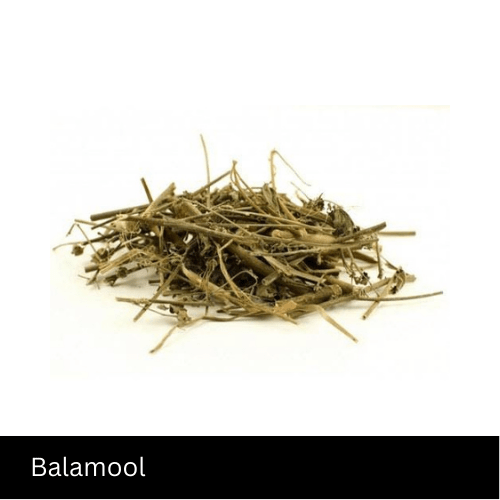About Sidacordifolia
The plant contains a variety of compounds such as alkaloids, flavonoids, and polysaccharides that are believed to have various therapeutic effects. Some of the potential health benefits of Sida cordifolia that have been studied in scientific research include:
-
Anti-inflammatory effects: Some studies have suggested that extracts of Sida cordifolia may help to reduce inflammation in the body, which could be beneficial for conditions such as arthritis and other inflammatory disorders.
-
Anti-diabetic effects: Sida cordifolia has been shown to have hypoglycemic effects in some animal studies, meaning that it may help to lower blood sugar levels. This has led some researchers to suggest that it could have the potential as a natural treatment for diabetes.
-
Immune-boosting effects: Compounds in Sida cordifolia have been shown to stimulate the immune system in some animal studies, which could have potential benefits for conditions such as HIV/AIDS.
Despite these potential health benefits, it’s worth noting that Sida cordifolia can also be potentially dangerous if used improperly. The plant contains ephedrine and related alkaloids that can have stimulant effects and may be harmful in high doses or for people with certain medical conditions. If you are considering using Sida cordifolia for its medicinal properties, it’s important to consult with a qualified healthcare professional first to determine whether it is safe and appropriate for you.
In Ayurvedic medicine, it is known by the Sanskrit name “Bala,” which means “strength” or “power.” In some traditional systems of medicine, Sida cordifolia is also referred to as “Khubbazi” or “Kharbuzakhatri” in Persian, and “Khapra kadha” in Hindi.
It’s worth noting that the same plant may have different common names in different regions, so it’s always a good idea to use the scientific name, Sida cordifolia, to avoid confusion.
-
Reduces inflammation: Sida cordifolia contains anti-inflammatory compounds that may help to reduce inflammation in the body, which could be beneficial for conditions such as arthritis and other inflammatory disorders.
-
Boosts immunity: The plant contains compounds that have been shown to stimulate the immune system, potentially offering benefits for conditions such as HIV/AIDS.
-
Lowers blood sugar levels: Some studies have suggested that Sida cordifolia may have hypoglycemic effects, meaning that it may help to lower blood sugar levels. This could make it a potential natural treatment for diabetes.
-
Improves respiratory health: In Ayurvedic medicine, Balamool is sometimes used to treat respiratory conditions such as coughs and bronchitis.
-
Enhances cognitive function: Some studies have suggested that compounds in Sida cordifolia may have cognitive-enhancing effects, potentially offering benefits for conditions such as Alzheimer’s disease.
-
Improves sexual health: In traditional Ayurvedic medicine, Balamool is sometimes used as an aphrodisiac to improve sexual health and treat sexual dysfunction.
-
Relieves pain: Sida cordifolia contains compounds that have pain-relieving effects, potentially offering benefits for conditions such as headaches and menstrual cramps.
-
Aids in digestion: The plant has been used in traditional medicine to treat digestive issues such as constipation, bloating, and indigestion.
-
Reduces stress and anxiety: Some studies have suggested that Sida cordifolia may have stress-reducing effects, potentially offering benefits for conditions such as anxiety and depression.
-
Promotes wound healing: In traditional Ayurvedic medicine, Balamool is sometimes used topically to promote wound healing and reduce inflammation.
-
Alkaloids: Balamool contains several alkaloids, including ephedrine, which has stimulant and bronchodilator effects.
-
Flavonoids: Flavonoids are a group of compounds that have antioxidant and anti-inflammatory properties. Balamool contains several flavonoids, including quercetin and kaempferol.
-
Tannins: Tannins are a group of compounds that have astringent properties and are believed to have anti-inflammatory and antioxidant effects. Balamool contains several tannins, including gallic acid and ellagic acid.
-
Essential oils: Balamool contains essential oils that are believed to have a variety of health benefits, including anti-inflammatory and antimicrobial properties.
-
Steroids: Balamool contains several steroids, including beta-sitosterol, which has been shown to have anti-inflammatory and cholesterol-lowering effects.
-
Polysaccharides: Balamool contains several polysaccharides, which are complex carbohydrates that have immune-boosting properties.
These compounds work together to provide the various health benefits associated with Balamool/Sida cordifolia. However, it is important to note that the plant can also have potential side effects, particularly if taken in large doses or used improperly, so it is important to use caution and consult with a healthcare provider before using Balamool as a treatment.

